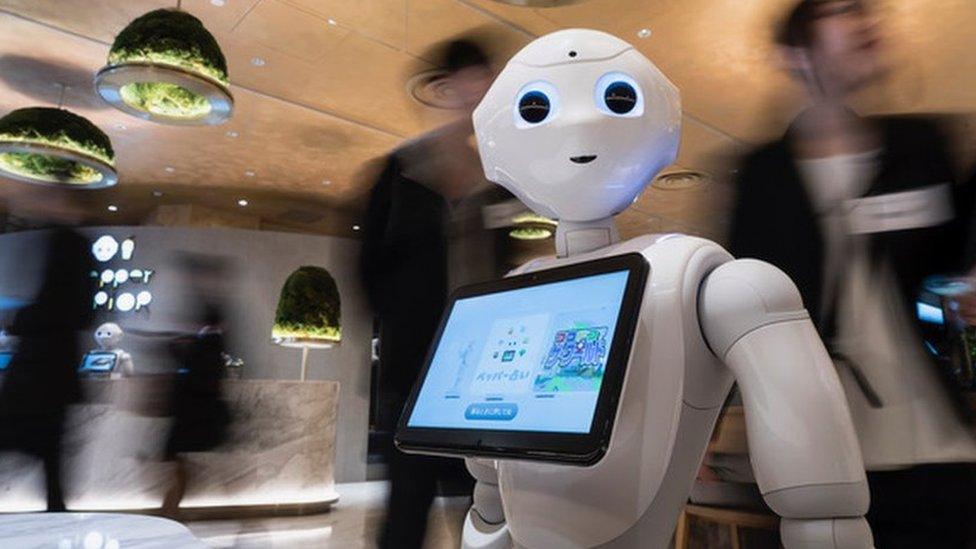RIP Pepper robot? SoftBank 'pauses' production
- Published

Pepper was one of the most high profile robots, making appearances at events around the world
Pepper, the friendly little humanoid robot that was launched to much fanfare back in 2014, looks as if it may be retired - for now at least.
Its maker, the Japanese conglomerate SoftBank, confirmed to the “óĻó“«Ć½ that production had been "paused for a while".
It would only start making the robot again "when it is needed", it said.
The firm is also slashing jobs at its global robotics operation in France, according to Reuters.
About half of the 330 jobs there will go, it reports.
According to Reuters, only 27,000 units were ever made
Pepper had gained attention as one of the first humanoid robots able to "read" emotions. It was promoted for use as both a home companion and in public places, such as shops and railway stations.
But despite some high profile appearances at conferences and events, it never really caught on as a commercial product. According to Reuters, only 27,000 units were ever made.
That was due in part to the $1,790 (Ā£1,290) price tag, which rose considerably higher when the $360 monthly subscription costs were added in. The 4ft, 62lb robot was mainly used as a research and educational tool for schools, colleges and universities.
Some of Pepper's other roles included:
appearing before a parliamentary select committee in UK to answer questions about the use of AI in the classroom in 2018
in the same year it began work as a customer engagement robot at HSBC's flagship New York branch
last year it was tested in care homes in the UK as a companion robot
helped autistic pupils in a school in Somerset
currently used as a receptionist in several offices around the world
greeted travellers at an airport in Montreal
in July 2020 a group of the robots were used as cheerleaders at a baseball game
Robotics expert Prof Noel Sharkey said he would be "happy to see an end to it".
"Pepper did a lot to harm genuine robotics research by giving an often false impression of a bright cognitive being that could hold conversations.
"It was mostly remote-controlled with a human conversing through its speakers. Deceiving the public in this way is dangerous and gives the wrong impression of the capabilities of AI in the real world."
Related topics
- Published26 June 2021
- Published16 October 2018